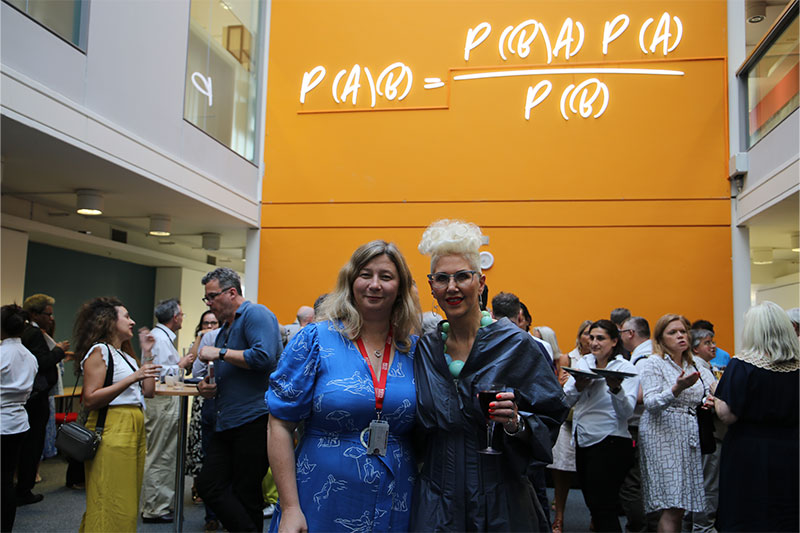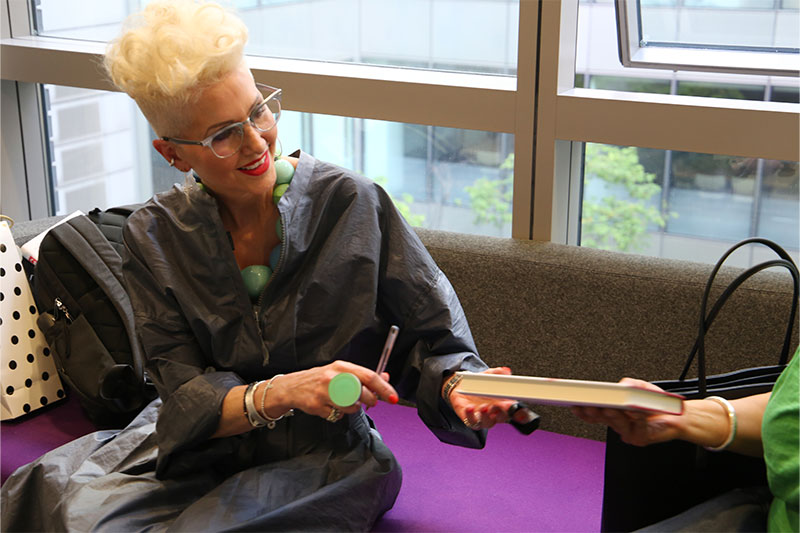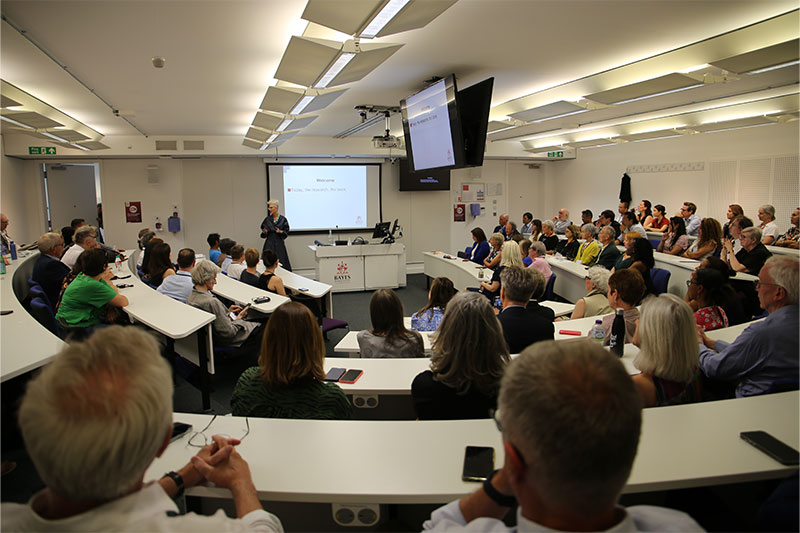What makes a leader credible? Professor Amanda Goodall delivers inaugural lecture
Professor Amanda Goodall becomes a full professor and launches her new book Credible, which discusses the power of expert leaders
What makes an expert credible?
Professor Amanda Goodall shared some of the insights she’s gained over the past 20 years of research into management and expert leadership during her inaugural lecture at Bayes Business School on Wednesday 14 June. The night doubled as the launch of her new book Credible: The Power of Expert Leaders, which will go on sale later in June.
The path to becoming a full professor
Amanda’s lecture drew in a full house to celebrate her promotion to full professor, with further chairs being brought into the lecture room to accommodate the crowd. The audience was made up of friends; family; her current students, who are mostly doctors; academic colleagues; her book agent and editor; as well as her former teachers from LSE, Professors David Downes and John Carrier.
Professor Caroline Wiertz, Deputy Dean at Bayes, introduced Amanda’s lecture. “Becoming a full professor is one of the most significant moments in the life of an academic,” said Caroline. “Amanda and I have been colleagues for 12 years. She is quite possibly the most energetic person you will meet, a wonderful and passionate colleague. She truly lives her research.”

Amanda has had a phenomenal career journey to becoming an academic. She left school at 16 with no O-levels to pursue modelling, and then at 23, she switched career paths to work internationally in campaigning and development. At 33, she began her academic journey by studying social policy at LSE.
After working with three university leaders at LSE, in Chicago and at Warwick University, she began her PhD asking the question, “Who should lead research universities, good scholars or good managers?” at Warwick Business School under the supervision of Professor David Wilson and Professor Steve Machin at LSE.
The case for expert leadership
Amanda’s book Credible is the definitive response to the backlash against expertise that has swept through much of the world. Her research shows that what makes the difference in organisational performance is having a boss with core business expertise and the credibility that comes from technical knowledge and industry know-how accrued over many years.

She has studied all kinds of organisations from banks to basketball teams, and found all clearly need bosses with core expertise. Those who lead hospitals and healthcare systems, for example, should be physicians with deep clinical expertise, not financiers or people parachuted in from other industries. Those who run school systems and universities should be great teachers and researchers.
Amanda debunks the cult of managerialism – which is the notion that smart people can run anything – and provides a different model for career success: go deep into a business, work hard, and know your stuff.
While campaigning in favour of the Brexit vote in 2016, then-justice secretary Michael Gove quipped: “People in this country have had enough of experts.” An expert is less likely to be a yes man or woman, as their professional credentials mean they follow standards and regulations.
During her inaugural lecture, Amanda argued that the worsening climate crisis has happened because we have not been listening to the long-time warnings of expert climate scientists. She also said that when organisations are run by leaders with core expertise in their fields, they perform better, leaders take a longer-term strategic view, and employees are happier and less likely to quit.
Professor Patrick Harker, a former Dean of the Wharton School of Business, made an astute observation on expert leadership when being interviewed, saying: “To be credible, the standard bearer must first bear the standard.” Amanda’s research confirms this: leaders should be expert exemplars for their organisations.
Her research has also been replicated in industries as diverse as education, sports, business and hospitals, and in data from Europe, Australia and the USA.
Launching the Executive Master’s in Medical Leadership
In recent years, Amanda has become particularly interested in studying hospitals. When looking at the data for top hospitals in the USA, she found their quality scores increased by approximately 25% when they were run by physicians.
Seeing a development need within the NHS, Amanda co-launched the Executive Master’s in Medical Leadership (EMML) in 2017, and it is one of only two leadership programmes tailored to the needs of doctors.
“At the time, we got a lot of flak for creating a medical leadership programme just for doctors, but we were firm in the need for this programme,” Amanda said. “Being an expert is not a proxy for having leadership and management skills.”

Ruth McCabe and Sanjiv Sharma, two alumni of the first cohort of the EMML, attended the inaugural lecture to share their experience of the programme and their success since graduating.
“Being a doctor means making difficult decisions,” said Ruth. “Studying the EMML was a unique opportunity to move from being a technical expert into the sphere of expert leadership. It taught me to ask the right questions.”
Sanjiv is the Executive Medical Director at Great Ormond Street Hospital for Children and described pursuing the EMML at a time when he felt unsure about his career.
“By the end of the first hour with Amanda, I was convinced that I could become a healthcare leader,” said Sanjiv. “After completing the EMML, I told my boss I would apply for his job when he left – which happened only two months later. Because of the programme, I had the language, credibility and agency to take on the role.”
He also canvassed fellow graduates, who described Amanda as “inspiring, commanding, expert, direct, committed, supportive, provocative and extraordinary.” Following her inaugural lecture, these are clearly traits that will stand her in good stead for the future.
